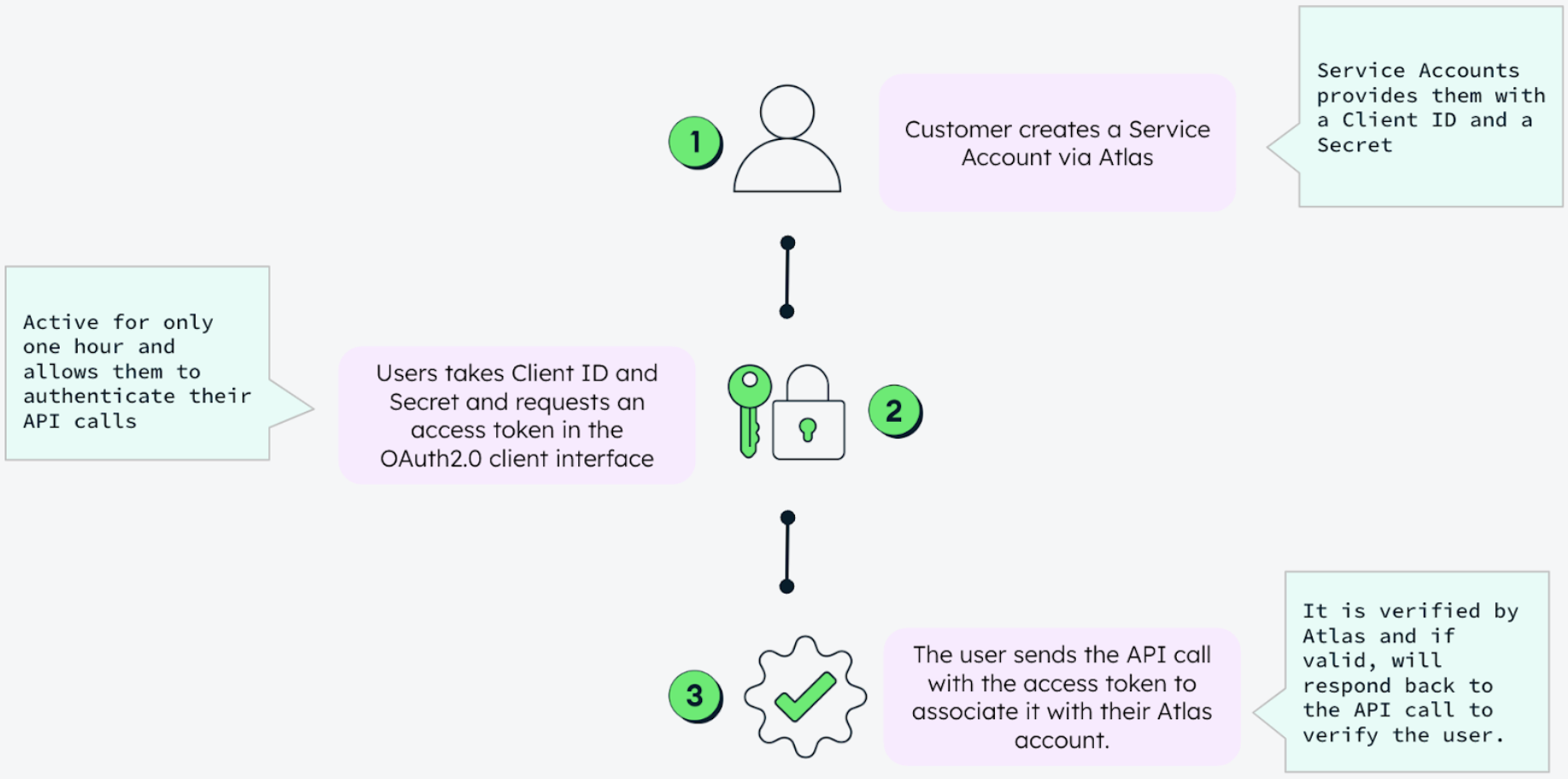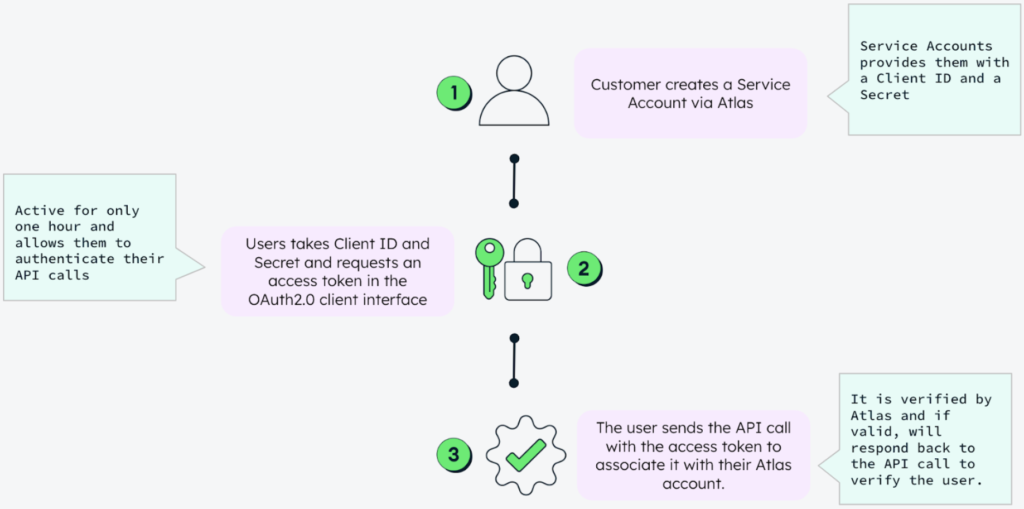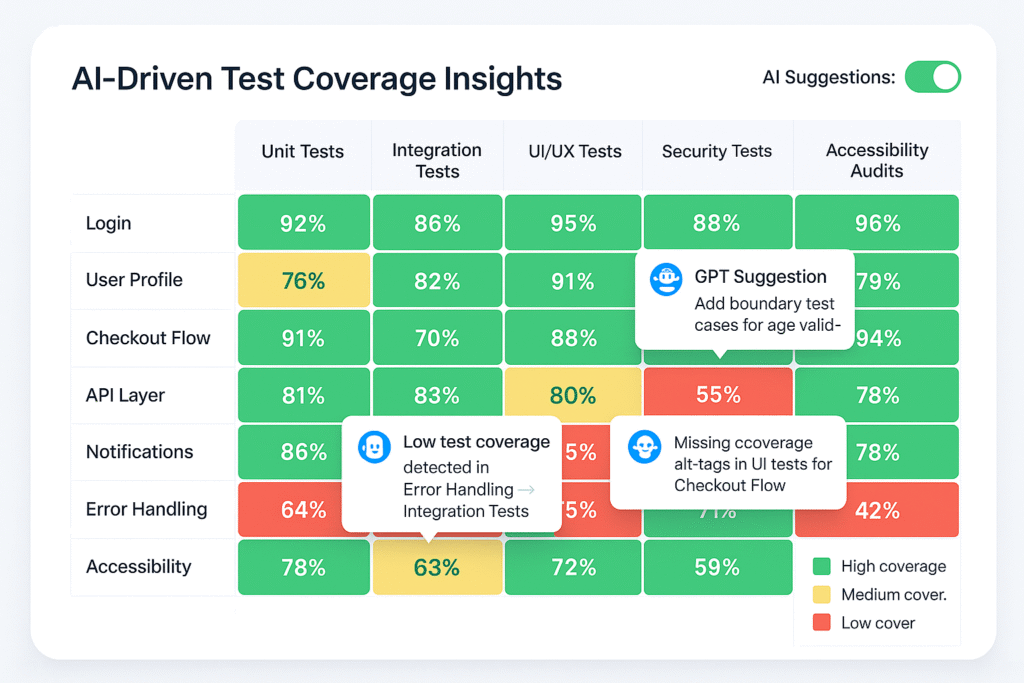Authentication is a crucial aspect of interacting with the MongoDB Atlas Administration API, as it ensures that only authorized users or applications can access and manage resources within a MongoDB Atlas project. While MongoDB Atlas users currently have programmatic API keys (PAKs) as their primary authentication method, we recognize that development teams have varying authentication workflow requirements.
To help developer teams meet these requirements, we’re excited to announce that Service Accounts via OAuth 2.0 for MongoDB Atlas is now generally available! MongoDB Atlas Service Accounts offer a more streamlined way of authenticating API requests for applications, enabling your developers to use their preferred authentication workflow.
Addressing the challenges of using programmatic access keys
At some point in your MongoDB Atlas journey, you have likely created PAKs. These API keys enable MongoDB Atlas project owners to authenticate access for their users. API keys include a public key and a private key. These two parts serve the same function as a username and a password when you make API requests to MongoDB Atlas. Each API key belongs to only one organization, but you can grant API keys access to any number of projects in that organization.
PAKs use a method of authentication known as HTTP Digest, which is a challenge-response authentication mechanism that uses a hash function to securely transmit credentials without sending plaintext passwords over the network. MongoDB Atlas hashes the public key and the private key using a unique value called a nonce. The HTTP Digest authentication specifies that the nonce is only valid for a short amount of time. This is to prevent replay attacks so that you can’t cache a nonce and use it forever. It’s also why your API keys are a mix of random symbols, letters, and numbers and why you can only view a private key once. As a result, many teams must manage and rotate PAKs to maintain application access security. However, doing this across multiple applications can be cumbersome, especially for teams operating in complex environments.
As a result, we’ve introduced support for an alternate authentication method through Service Accounts via OAuth 2.0, which enables users to take advantage of a more automated authentication method for application development.
Using Service Accounts with an OAuth 2.0 client credentials flow
OAuth 2.0 is a standard for interapplication authentication that relies on in-flight TLS encryption to secure its communication channels. This prevents unauthorized parties from intercepting or tampering with the data.
The MongoDB Atlas Administration API supports in-flight TLS encryption and uses it to enable Service Accounts as an alternative method for authenticating users.
MongoDB Atlas Service Accounts provide a form of OAuth 2.0 authentication that enables machine-to-machine communication. This enables applications, rather than users, to authenticate and access MongoDB Atlas resources. Authentication through Service Accounts follows the same access control model as PAKs, with full authentication lifecycle management. Service Accounts use the OAuth 2.0 client credentials flow, with MongoDB Atlas acting as both the identity provider and the authorization server. Like PAKs, Service Accounts are not tied to individual MongoDB Atlas users but are still ingrained with MongoDB Atlas.

Experiencing benefits through Service Accounts
Using Service Accounts to manage programmatic access offers a number of advantages:
Automation
Service Accounts offer an automated way to manage access. Users don’t need to manually manage authentication mechanisms, like recreating a Service Account to rotate the “client secrets.” Instead, they only need to regenerate the client secrets while keeping the other configuration of the existing Service Account intact. Furthermore, Service Accounts are broadly supported across many platforms, enabling easier integration between different services and tools and facilitating easier connections across applications and infrastructure components, regardless of the underlying technology.
Seamless integration with MongoDB Atlas
Service Accounts enable developers to manage authentication in the workflow of their choice. Users can manage the Service Account lifecycle at the organization and project levels via the MongoDB Atlas Administration API, the provided client library (currently, the Atlas Go SDK) , and the Atlas UI. They integrate with MongoDB Atlas via the OAuth 2.0 client credential flow, enabling seamless authentication using cloud-native identity systems.
Granular access control and role management
Service Accounts also have robust security features, providing a standardized and consistent way to manage access. Each organization or project can have its own Service Account, simplifying credential management and access control. Additionally, you can define granular roles for a Service Account to limit its access to only the necessary resources. This reduces the risk of over-permissioning and unauthorized access.
Ready to uplevel your user authentication?
Learn how to create your first Service Account by visiting our documentation. Not a MongoDB Atlas user yet? Sign up for free today.
Source: Read More



